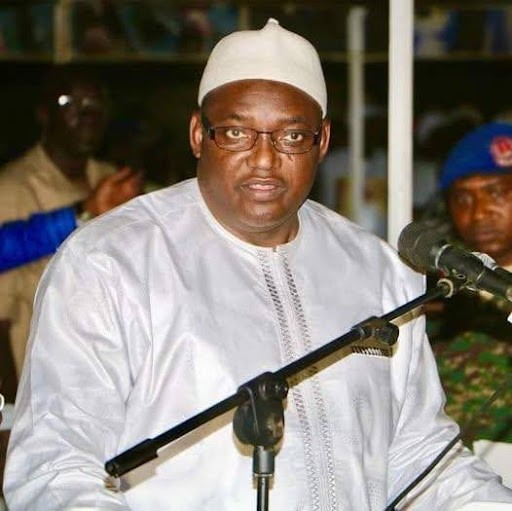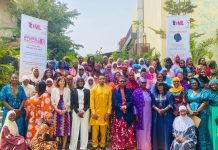By Nelson Manneh
President Adama Barrow on Monday, 18 November 2024, launched The Gambia’s 2025-2034, National Gender Policy and inaugurated the 2024-2029 National Women’s Council.
The new policy provides a strategic framework to systematically integrate gender equality into all aspects of national development, underscoring the government’s commitment to sustainable progress.
Speaking at the launch, President Barrow emphasized the central role of women in advancing national prosperity and achieving global development goals.
“Women’s empowerment is globally recognized as a cornerstone of a nation’s progress and prosperity,” said President Barrow. “Gender equality is key to delivering all the Sustainable Development Goals (SDGs). We embrace it as a critical enabler and accelerator for Agenda 2030. Women and girls must enjoy their rights to education, health services, justice, security, and economic resources, including access to markets and property rights.”
The President hailed the new policy framework as a “critical roadmap for transformative action,” designed to align with the Constitution and uphold progressive values.
“The National Gender Policy Framework outlines our vision and intent to provide women with the rights and opportunities to prosper as equal partners and citizens before the law,” he stated. “Effective implementation will contribute immensely to inclusive social and economic development, allowing women to play empowering roles without barriers.”
President Barrow lauded past achievements, including closing the gender gap at primary and secondary education levels, while reaffirming his government’s commitment to achieving similar progress in tertiary education.
“The launch of this policy and the inauguration of the National Women’s Council mark a giant step towards gender equality in The Gambia,” he declared. “This milestone aligns with global efforts to achieve SDG Goal 5, which seeks to empower all women and girls by 2030.”
While celebrating women as the backbone of Gambian society, President Barrow acknowledged the challenges they face, including gender-based violence, limited access to education, inadequate healthcare, and under-representation in decision-making.
“These barriers hinder the full participation of women and girls in socio-economic development,” he said. “The National Gender Policy addresses these challenges comprehensively, building on previous frameworks while setting new priorities to ensure no one is left behind.”
The policy, he added, promotes a culture of respect for women’s rights and aims to guarantee equal opportunities for all.
President Barrow emphasized that achieving gender equality requires a collective effort, with the incoming National Women’s Council playing a pivotal role in the journey.
“The journey towards gender equality starts with the commitment of every Gambian,” he said. “The Policy provides a common vision and shared purpose to move forward together. This is not merely symbolic; it is a decisive step towards achieving tangible progress for women and girls across the nation.”



















